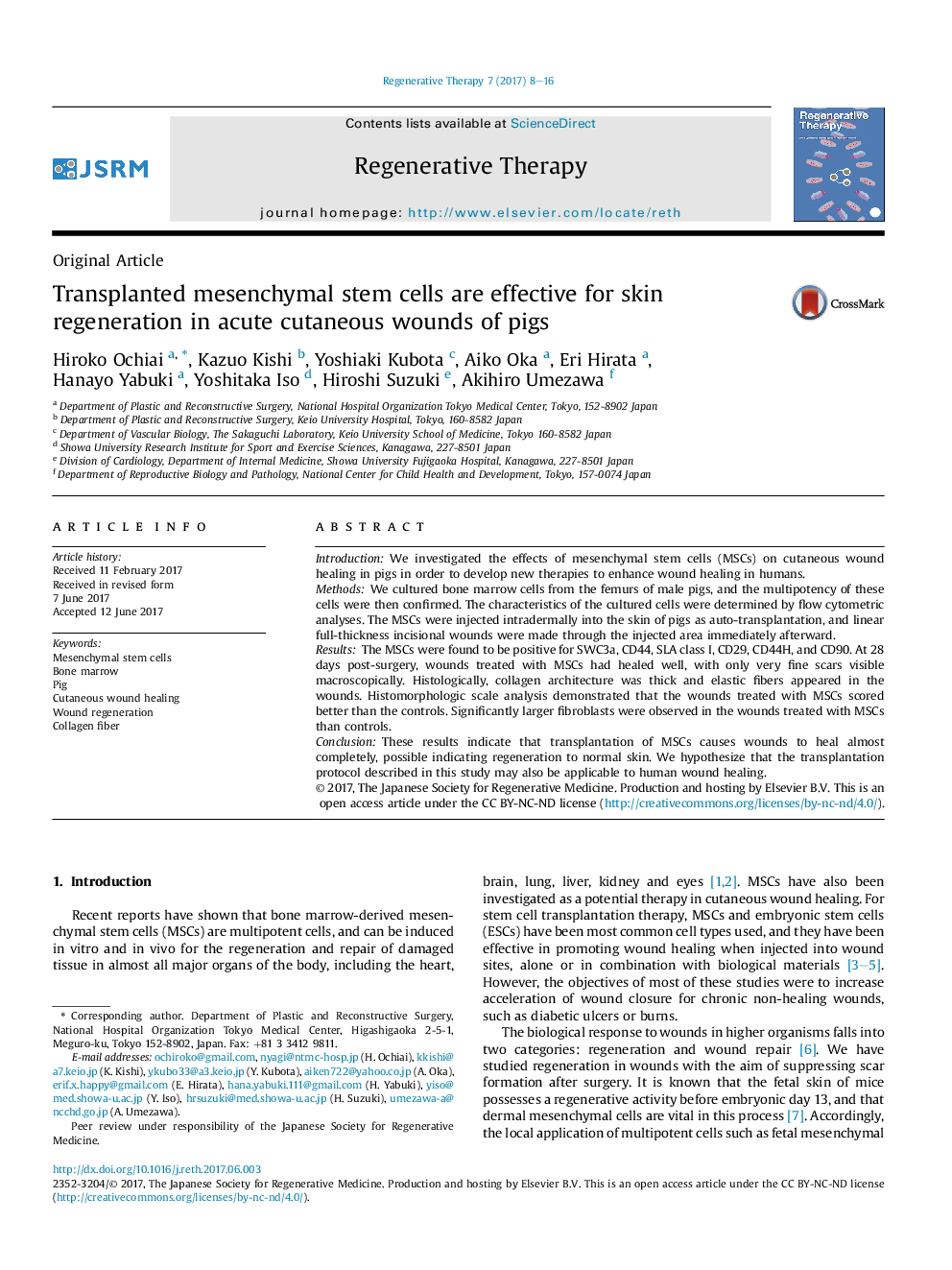| Article ID | Journal | Published Year | Pages | File Type |
|---|---|---|---|---|
| 5516182 | Regenerative Therapy | 2017 | 9 Pages |
â¢MSCs contribute to skin regeneration in acute cutaneous wounds of pigs.â¢Cutaneous wounds of pig transplanted with bone marrow-derived MSCs healed with very fine scars, and collagen architectures were similar to normal dermis.â¢We hypothesize that the transplantation of MSCs may also be applicable to human wound healing, because cutaneous of pigs are an excellent model for human skin.
IntroductionWe investigated the effects of mesenchymal stem cells (MSCs) on cutaneous wound healing in pigs in order to develop new therapies to enhance wound healing in humans.MethodsWe cultured bone marrow cells from the femurs of male pigs, and the multipotency of these cells were then confirmed. The characteristics of the cultured cells were determined by flow cytometric analyses. The MSCs were injected intradermally into the skin of pigs as auto-transplantation, and linear full-thickness incisional wounds were made through the injected area immediately afterward.ResultsThe MSCs were found to be positive for SWC3a, CD44, SLA class I, CD29, CD44H, and CD90. At 28 days post-surgery, wounds treated with MSCs had healed well, with only very fine scars visible macroscopically. Histologically, collagen architecture was thick and elastic fibers appeared in the wounds. Histomorphologic scale analysis demonstrated that the wounds treated with MSCs scored better than the controls. Significantly larger fibroblasts were observed in the wounds treated with MSCs than controls.ConclusionThese results indicate that transplantation of MSCs causes wounds to heal almost completely, possible indicating regeneration to normal skin. We hypothesize that the transplantation protocol described in this study may also be applicable to human wound healing.
